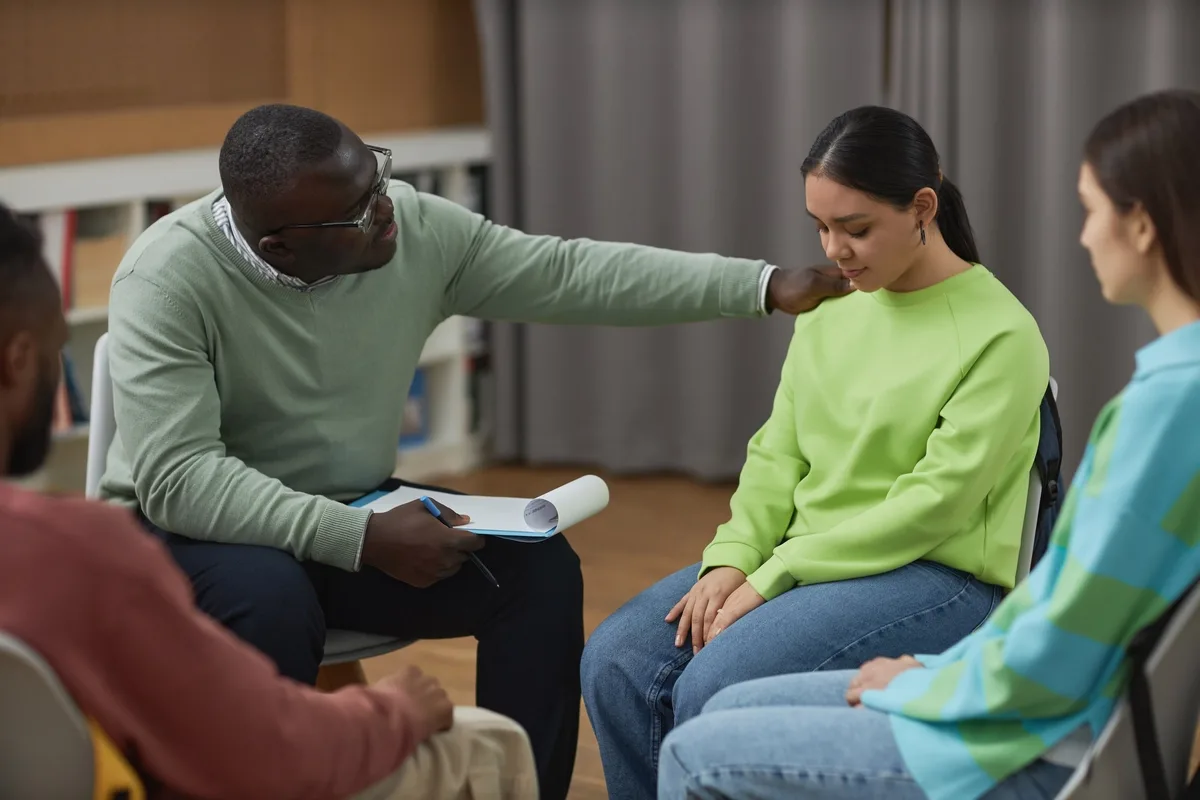24/7 Helpline:
(866) 899-221924/7 Helpline:
(866) 899-2219
Learn more about Aftercare Support centers in Clarksville

Other Insurance Options

MHNNet Behavioral Health

United Health Care

Optima

Private insurance

ComPsych

Evernorth

UMR

Anthem

Absolute Total Care

Horizon Healthcare Service

Molina Healthcare

PHCS Network

American Behavioral

MVP Healthcare

Excellus

UnitedHealth Group

CareSource

Multiplan

Health Net

Coventry Health Care

























